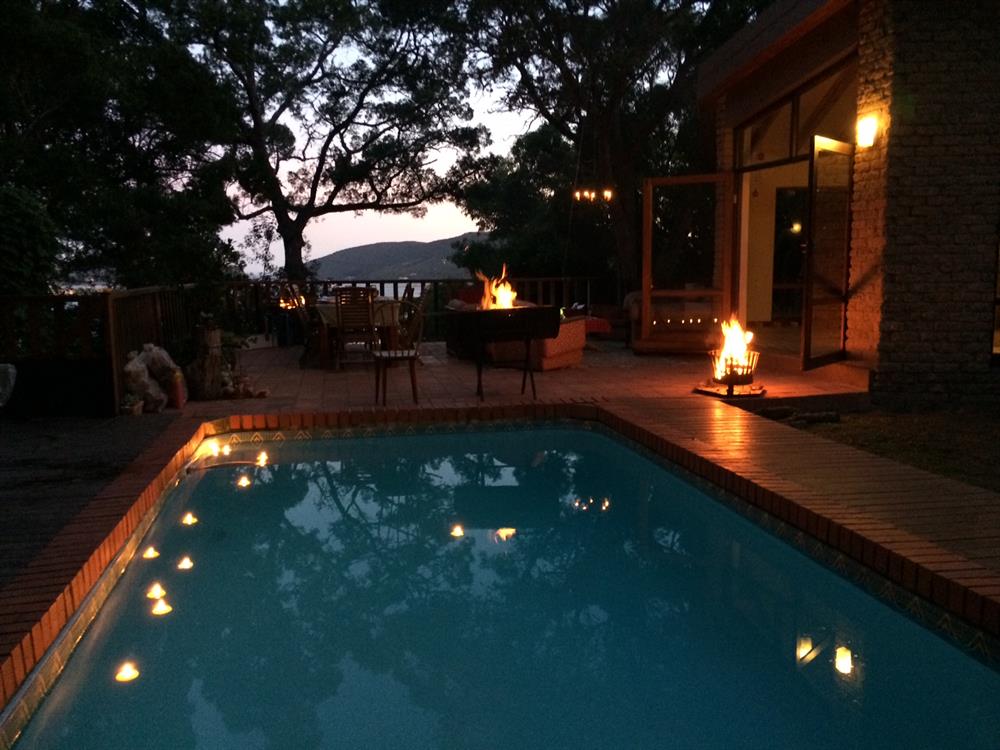Earth Hour was famously started as a lights-off event in Sydney, Australia in 2007. Since then millions of people in over 7 000 cities and towns and 152 countries have participated in the world’s largest voluntary mass participation environmental initiative.
This hour is supposed to signify a moment of global unity, a special hour of contemplation, celebration and commitment to the planet beyond the hour - an opportunity to reflect on mankind's impact on the environment and a chance to renew commitment to protecting the planet.
Knysna's municipal manager, Lauren Waring, says that people can and do have a great impact on the world through individual action. "Earth Hour has proved that if you believe in something strongly enough, amazing things can be achieved."
The Knysna Municipality showed its support by switching off electricity to several of the main municipal buildings and offices during Earth Hour to demonstrate the town's commitment to protecting the planet.
As part of its support for the Earth Hour campaign, Eskom measured the reduction in electricity used during the hour (between 20:30 and 21:30) against typical consumption for this time on an average Saturday evening. Eskom also switched off non-essential lighting at all its offices around the country, except at strategic facilities for security reasons.
South Africans achieved a massive 629 MW reduction in their electricity usage during this year’s Earth Hour, says Eskom.
Last year, Eskom measured an estimated reduction of approximately 402 MW during the hour-long campaign - enough electricity to power the city of Bloemfontein.
This year’s figure suggests that more and more South Africans are seeing the value of switching off what they are not using.
In South Africa, the majority of fuel and electricity used comes from 'dirty', non-renewable sources such as coal, oil and gas. "We must become aware of the kind of energy we use every day and the need to switch over to clean, renewable energy sources such as sun, wind and water," says WWF-SA CEO, Dr Morné du Plessis.
Du Plessis explains that first and foremost, everyone needs to aim to be energy efficient. This means using the stairs instead of the lift, switching off the lights when leaving a room and unplugging appliances when not in use. It also includes switching over to more energy-efficient and sustainable solutions such as energy-saving light bulbs, renewable energy sources such as solar-water geysers and solar panels, and reducing transport energy consumption by carpooling, walking or cycling where possible.
Currently, mankind is using the equivalent of 1.5 times the planet’s natural resources to support consumption patterns. Much of this overshoot relates to the Earth’s inability to keep up with storing excess carbon. For this reason, mankind cannot afford to ignore the critical environmental challenges being faced, especially from the use of dirty fossil fuels.
"Our small positive actions all add up. If a warm cup of coffee, lights and television are a part of your daily routine then you are a very lucky person and you should count these among your blessings everyday," said Du Plessis.
Earth Hour in Knysna
Earth Hour’s call to action was met with positive responses in Knysna. The Knysna-Plett Herald asked a few locals and visitors how they spent their Earth Hour this year and was surprised to learn that most people spoken to on the streets have a longer term strategy and were not aware of Earth Hour or had strategies of their own to show they care.
PHOTO GALLERY

Preparing for Earth Hour in Knysna.
'We bring you the latest Knysna, Garden Route news'
















